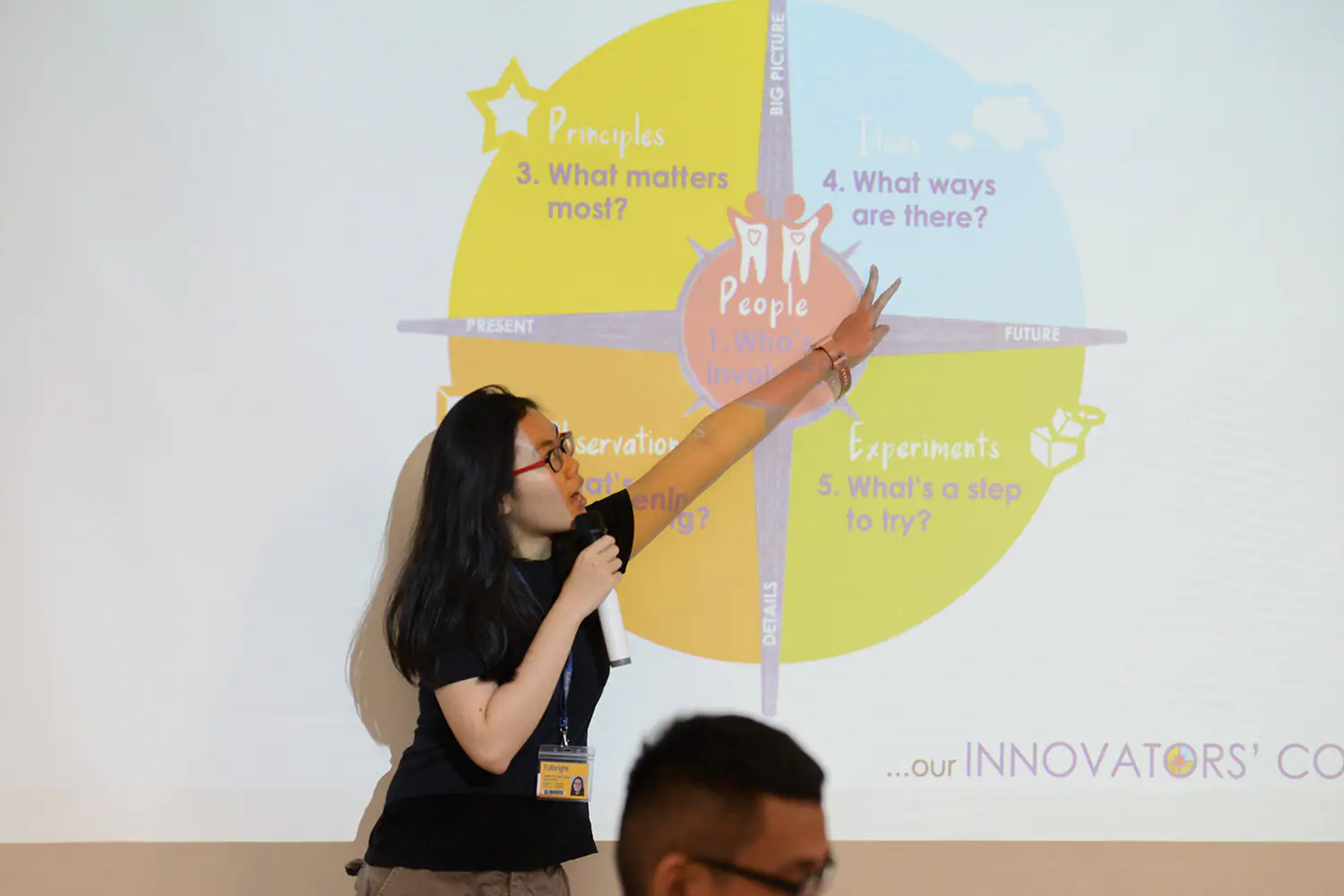
Last January, I joined a special course called Engineering for Humanity which was co-taught by an anthropology and a design professor from Olin College of Engineering. I worked with a group of students and faculty at Fulbright University Vietnam to create a project that could potentially improve an elderly person’s life.
The class components
The Engineering for Humanity class had four main components: (1) Observations, (2) Principles, (3) Ideas, and (4) Experiments. These components acted as a roadmap to guide us through a process of creating a product of choice. Our product was a special chair to help enhance elderly people’s mobility.
- Observations – Story of a wallet: Our first exercise was to find out as much as possible about a person through their phone or wallet. We had to watch them using their item, investigate the item ourselves, and then ask them questions about their item. It was weird, and awkward, and hard. But it was also pretty cool.
- Mrs Nga’s principles: Our community partner was Mrs. Nga. We asked her a bunch of questions and observed her in her house while she carried on with her daily routine. Questions such as ‘What matters to you most?’, ‘What do you usually do?’ or ‘Is there any problem for you going about your daily routine?’ helped us learn many things about her life philosophies and principles.
- Ideas – Let’s be creative: We were in the middle of brainstorming ideas. We already knew that we wanted to help her with mobility issues so that she could interact better with people outside her house; this was one of her main needs. Yet, we didn’t know how to do that. There were many ideas. They ranged from practical ones like a crane, a chair, a knee band; to wildly creative ones like covering up her stairs to make it less slippery, or making a policy to have chairs scattered along the path from her house to the grocery store. We stood by the whiteboard near the big circle, and we were racking our brains while joking childishly.
- Experiments – Trials and errors: We went around the city trying to finish the chair after going through a long phase to get the chair we wanted. We looked through lots of pictures of chairs with Mrs. Nga and asked how she felt about each one. We tried to make a cardboard chair so that Mrs. Nga could feel how high/low she would like it to be. We even made tiny chairs from papers and fabric so that we could have a better understanding of what our design would be; etc. Eventually, that chair we and Mrs. Nga loved slowly took form in front of our eyes.

The Compass
The process that we went through in class was not random; it was guided by a compass – the Innovator’s Compass created by Ela Ben-Ur *. The Compass taught us that the heart of any design process should be the users. The first step of design should be to understand the users and their needs; only then, we can find a way to address them. No design process is done in one step; a series of experiment must be conducted so that the product can be refined through trials and errors.
Many things in life, generally, can be guided using that compass. When we encounter a problem and don’t know which way to go forward, we can start by trying to learn more about it. By understanding its root cause, we have different ideas of how to address the problem. Then, by testing out our solutions, we can solve it.
Similar to the compass in designing, the compass in life takes time to master. The first stage of getting to know something or someone is usually the longest. Yet, without this stage, we will not have the right foundation to build our ideas on.
The principle
Another important lesson I took away from this class is that we welcome failures. We tried, and failed, and tried again, and failed even faster. But it’s okay. Sometimes it is better to just try and fail rather than letting the fear of failure hold us back. Who knows what great achievements we are destined to create without taking that first step to try.

Final thoughts
I always thought that errors were failures and that I needed to do everything as perfectly as possible. It was no surprise that I usually ended up not doing anything because I either was afraid or could not find a perfect solution in one go. Through this course, I realize that there is no perfect solution without making any mistakes. The most important thing is to have an idea so that I can test its feasibility. Without knowing where I go wrong, I cannot make it right.
I always thought designing was for the experienced ones – those selected few who are gifted to create new things. I thought I was not those people for I am conventional and systematic. Yet, I succeeded designing an actual product. Maybe designing is, afterall, not a task only for the privileged ones.
Yes. If one never tries, one never knows. If I had not conjured all my courage to apply for this class, I would not have had the chance to experience different ways this class had changed my outlook on life. Who would have thought that an Engineering for Humanity class would teach me so much about myself.
(*) innovatorscompass.org – Ela Ben-Ur
Trang Quach
Student of Co-Design Year







